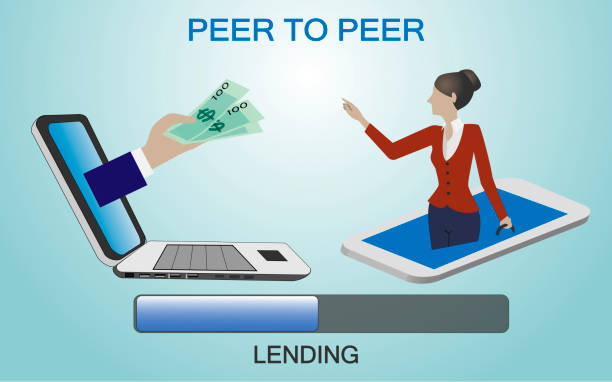Starting a business is an exciting adventure. You have a vision you want to achieve and a problem you want to solve with your business. However, one aspect that often leaves entrepreneurs like yourself frustrated is the challenge of securing the necessary funding to bring these dreams to life.
There are a lot of obstacles that small business owners face when seeking financing, especially if there are very few options known to them. The good news is that there are numerous financing options available, each with its own set of benefits and potential drawbacks that you must choose to endure.
This comprehensive guide will delve into six common financing avenues that span industries, ensuring you are well-equipped to navigate the twists and turns of securing funds for your business. Read on to find out more.
1. Bootstrapping: Fund Your Business from Within
Bootstrapping gives you the independence to build your business organically. This method involves tapping into your personal savings or generating revenue from your sales to drive your business forward.
However, it’s important to acknowledge that while bootstrapping ensures your ownership remains intact, it might slow down your expansion. Patience and careful financial and internal business planning are key to successful bootstrapping, as you allocate your personal savings or generate revenue from sales to fuel growth.
Advantages of Using Bootstrapping to Fund Your Business
Autonomy: You retain complete control over your business decisions, allowing you to shape your vision without external interference from investors or lenders.
No Equity Loss: Say goodbye to sharing your ownership with investors. Every bit of your business remains yours when you bootstrap.
Disciplined Spending: Operating with limited resources encourages you to make prudent financial choices, fostering a culture of careful budgeting and spending within your business.
Challenges of Using Bootstrapping to Fund Your Business
Limited Resources: Relying solely on personal funds or revenue can restrict your ability to scale and seize growth opportunities.
Slower Growth: Without substantial external funds, your growth trajectory might be more gradual compared to businesses with larger investments. Bootstrapping can slow down your business’s growth.
2. Angel Investors: Fund your Business with Support from Investors
Angel investors are benefactors who invest their personal funds into startups, aligning their visions with yours. Finding investors who believe in your vision can be challenging, but angel investors are there to offer both funding and guidance.
These high-net-worth individuals invest their own money in startups, often bringing valuable industry connections and mentorship to the table. Building a relationship with angel investors involves showcasing not only your business idea but also your commitment to success. Keep in mind that sharing equity comes with this territory, so ensure your goals are aligned with those of your investor.
Advantages of Using Angel Investors to Fund Your Business
Early-Stage Funding: Angel investors often step in during the critical early stages of your business, providing much-needed financial backing.
Mentorship and Connections: Beyond money, angel investors offer valuable guidance, industry insights, and connections that can fast-track your growth.
Validation: An angel investor’s backing lends credibility to your business, attracting more attention from other potential investors.
Challenges of Using Angel Investors to Fund Your Business
Equity Sharing: Opening up your business to angel investors means exchanging a percentage of your business for investment from these investors. They get a say in your business decisions.
Alignment of Goals: Stating your business goals and ensuring your goals and visions align with those of your angel investor is crucial to avoiding conflicts down the road.
Hard to Find: While getting an angel investor may come with benefits such as mentorship and credibility, angel investors can be hard to find. And when you do find them, convincing them to invest in your business can be challenging.
3. Fund Your Business With Debt Financing
If you’re a fan of the traditional route, debt financing is your go-to method. While it allows you to retain full ownership, repayment obligations, and potential interest costs must be managed. Bear in mind that small business loans may involve extensive paperwork and a rigorous application process, which can sometimes be frustrating. But with the right strategy and business plan, this path can provide the funding necessary to scale your operations.
Advantages of Using Debt Financing to Fund Your Business
Ownership Retention: When you borrow money, you don’t give away equity. You retain full ownership and control of your business operations as well as your decisions. Traditional banks don’t interfere with your business when you borrow money from them.
Interest Tax Deductions: Interest paid on loans can often be deducted from your business’s taxable income, reducing the amount of money you pay in tax.
Faster Access: Compared to seeking investment from investors, the loan application process can be quicker, providing timely funds. Although there may be complex paperwork, it can still be faster than looking for funds from other options like angel investments.
Challenges of Using Debt Financing to Fund Your Business
Repayment Obligations: Loans come with the responsibility of repayment, which might strain your cash flow if not managed well. You will always be obligated to pay your loan on time, and defaulting might pose severe consequences like asset seizure.
Interest Costs: Depending on the terms, interest rates can be high or costs can add up, increasing the overall amount you’ll need to repay over time.
4. Grants: Non-Repayable Funds for Specific Purposes
Imagine receiving funding without the burden of repayment. Grants offer precisely that opportunity. Available from governments, private institutions, and nonprofits, grants are targeted funds for specific projects or purposes.
However, the competition for grants can be fierce, and the application process often demands meticulous attention to detail. Despite the hurdles, grants can provide a valuable boost to your business, allowing you to focus on innovation and development.
Advantages of Using Grants to Fund Your Business
No Repayment Required: Grants provide a financial boost without the burden of repayment, allowing you to focus solely on your business. No repayment means you get to focus on just using the money to boost your business.
Targeted Funding: Grants are often designed for specific projects or purposes, ensuring the funds are used where they’re most needed.
Credibility Boost: Being awarded a grant adds credibility to your business and can attract further attention from both customers and investors. If the awarding institution has a larger influence on the public, you can directly benefit from this influence when you win a grant from them.
Challenges of Using Grants to Fund Your Business
Competitive Application Process: Grants are competitive, and securing one often involves rigorous applications and thorough documentation. It may require a lot of preparation on your part as an applicant.
Stringent Requirements: Grants might come with specific terms and conditions that must be adhered to, potentially limiting flexibility. Some grants can be difficult to get, especially if you don’t meet all the requirements.
5. Microloans: Small-Scale Financing for Startups
Microloans are designed to address the financing challenges faced by small business owners, offering relatively small amounts of capital with flexible terms. Microlenders understand the complexities of starting a business, often considering alternative credit evaluations beyond traditional measures.
While the interest rates may be more favorable than those of traditional loans, the application process can sometimes be time-consuming. However, the potential benefits in terms of accessible funding and supportive lenders make it worth exploring.
Advantages of Using Microloans
Accessibility: Microloans cater to startups with modest funding needs, making them accessible to businesses that might not qualify for larger loans. It is mostly available for small business owners who don’t require large sums of money, making it very accessible.
Flexible Terms: Microlenders often offer more lenient credit evaluations and repayment terms, accommodating businesses with limited credit histories.
Supportive Lenders: Microlenders understand the challenges startups face and may provide guidance beyond just financing to make sure you are on the right path as a business owner.
Challenges of Using Microloans
Application Process: While less stringent than traditional loans, microloan applications can still involve paperwork and due diligence. You must be willing and prepared to provide your updated business documents to improve your chances of getting a loan.
Interest Rates: Microloans might carry slightly higher interest rates compared to traditional loans due to the perceived risk of lending to startups. Get the exact rate and all the strings attached from the lender before taking out a microloan.
6. Peer-to-Peer Lending: Borrowing from Individuals Online
In the digital age, peer-to-peer lending platforms have emerged as a viable financing option. These online platforms connect borrowers with individuals willing to lend money. Quick access to funds and a diverse lending pool are enticing advantages, but there are potential downsides as well.
Interest rates might be higher compared to traditional loans or microloans, and terms can vary widely. Researching and selecting the right platform is crucial to ensuring a positive borrowing experience.

Advantages of Using Peer-to-Peer Lending to Fund Your Business
Diverse Lending Pool: Peer-to-peer lending connects borrowers with a wide range of individual lenders, increasing your chances of securing funds for your business.
Quick Access: The online nature of these platforms facilitates swift and convenient access to funds, making them suitable for urgent financial needs.
Less Stringent Requirements: Unlike traditional banks or microlenders, peer-to-peer lenders often consider a broader range of factors beyond traditional credit scores, giving startups more opportunities.
Challenges of Using Peer-to-Peer Lending to Fund Your Business
Interest Rates: Interest rates can vary widely on peer-to-peer lending platforms, potentially resulting in higher borrowing costs. There are many peer-to-peer lending platforms available, so make sure to research and get a platform with better interest rates.
Variable Terms: Each platform might have different terms and conditions for lending money to business owners, so careful research is needed to select the most suitable option to fund your business.
Final Thoughts: Ways To Fund Your Business
While the road to securing funding for your small business can be arduous, remember that you’re not alone. There are countless entrepreneurs who have overcome these challenges and thrived.
However you decide to fund your business—bootstrap, dance with angel investors, embrace debt financing, seek out grants, explore microloans, or venture into the world of peer-to-peer lending—remember that each option brings its own rewards and challenges. By assessing your financial needs, and your available options, you can settle on an option that will help you achieve your business goals.





